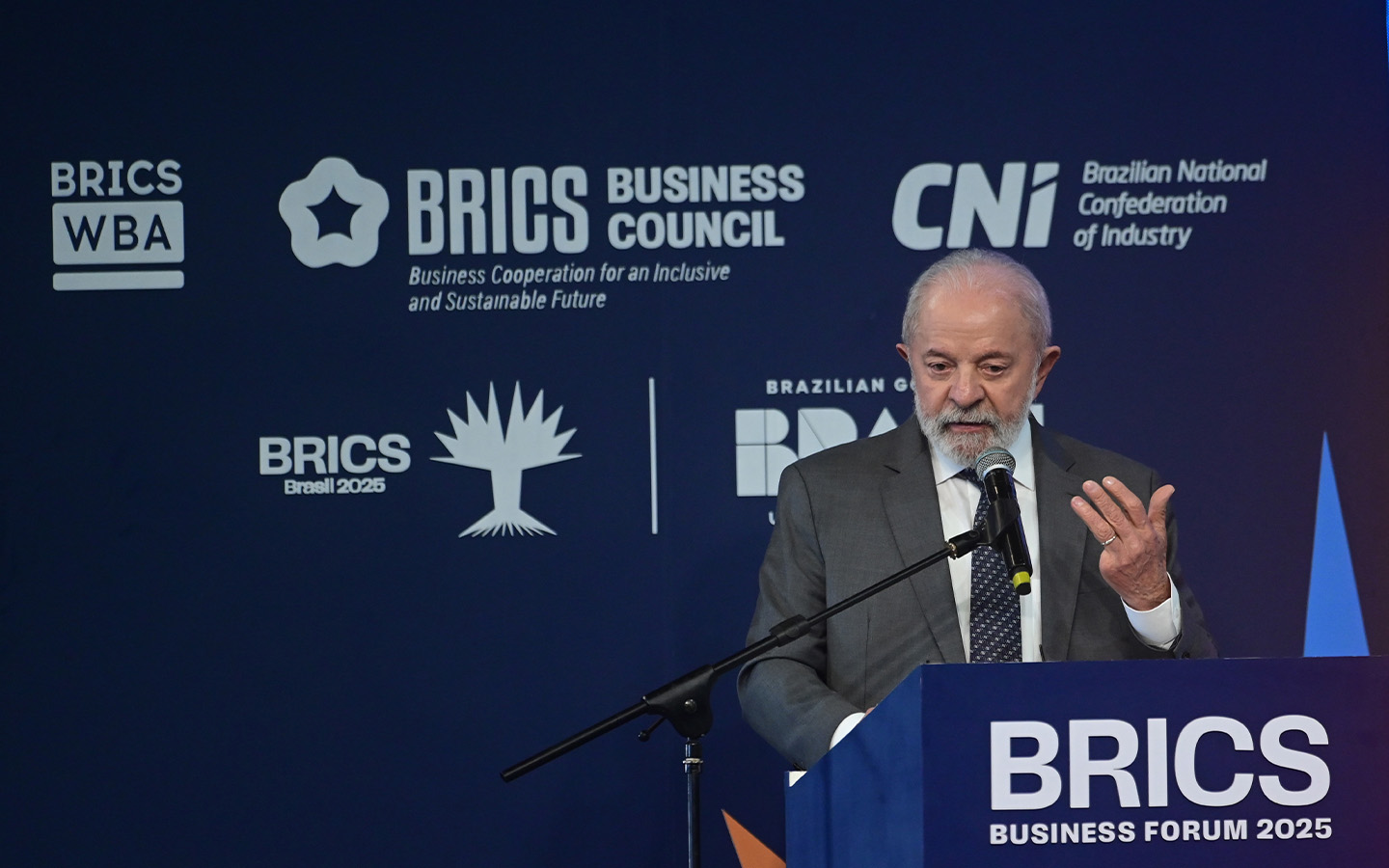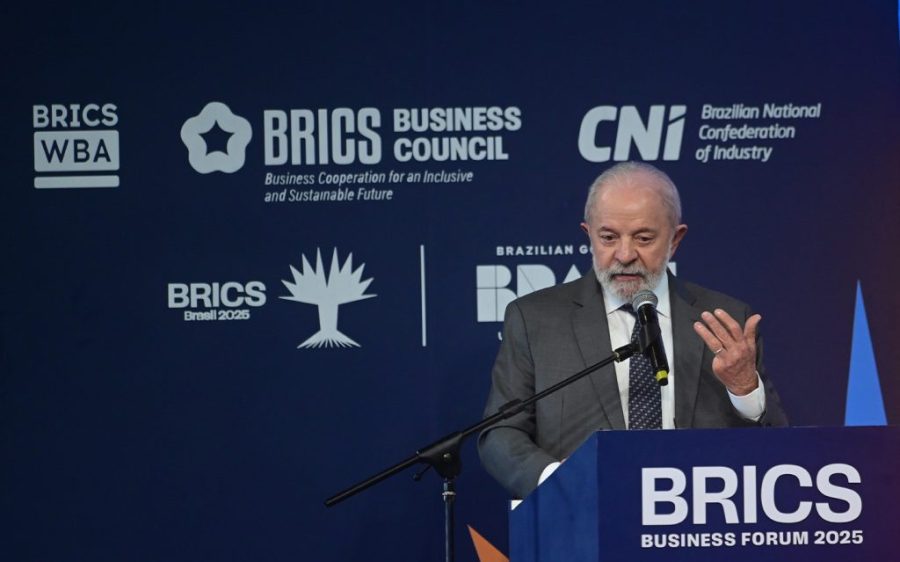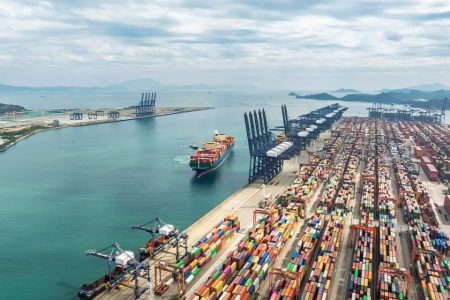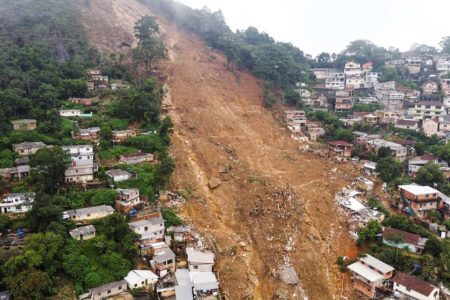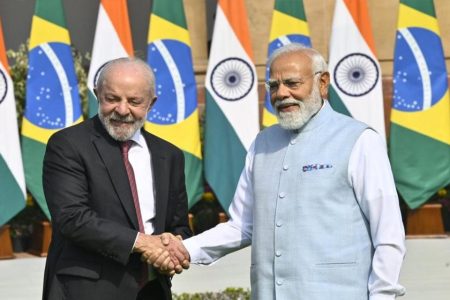US President Donald Trump has targeted Brazil with steep tariff hike, marking a new stage in America’s global trade war and prompting threats of retaliation from the South American country.
On 6 July, as leaders met in Rio de Janeiro for a two-day BRICS summit – bringing together the international alliance helmed by Brazil, Russia, India, China and South Africa – Trump responded aggressively to a joint statement issued the day before, reports Reuters.
The statement appeared to criticise his administration’s tariffs and foreign policy, although it did not directly name the president or the US. Trump fired back in a post on his social media platform, Truth Social, threatening to impose an additional 10-percent tariff on “any country aligning themselves with the anti-American policies of BRICS.”
He wrote: “There will be no exceptions to this policy” but did not elaborate or name which BRICS policies he was referring to. Russia and China emphasised that the bloc does not target any countries, China’s foreign ministry adding that BRICS is “not a bloc for confrontation.”
Brazil’s President Luiz Inácio Lula da Silva meanwhile told reporters on 7 July: “This is a set of countries that wants to find another way of organizing the world from an economic perspective. The world has changed. We don’t want an emperor.” Within days, Trump fired back, announcing a staggering 50-percent tariff on Brazil.
Trump accused Brazil of unfair trade practices, despite running a trade surplus with the country, and said the tariffs were imposed due to what he purported to be “Brazil’s insidious attacks on Free Elections, and the fundamental Free Speech Rights of Americans.”
Trump also accused the Brazilian government of carrying out a “witch hunt” against Lula’s far-right predecessor Jair Bolsonaro, currently on trial for allegedly plotting a violent coup to take power after his 2022 election loss. Bolsonaro is widely recognised as a supporter and admirer of Trump.
[See more: Brazil’s former president Jair Bolsonaro will be tried over an alleged coup attempt]
Lula rebuffed the accusation and stood up for the independence of Brazil’s courts, while the value of the Brazilian real fell over 2 percent against the dollar, and stocks in major Brazilian companies like planemaker Embraer and oil giant Petrobras took a hit.
“We’ll first try to negotiate, but if there’s no negotiation, the law of reciprocity will be put into practice,” Lula said in an interview with Record TV, citing a law Congress recently passed giving the president powers to retaliate against trade barriers. “If they’re going to charge us 50, we’ll charge them 50.”
In the US, experts are questioning whether Trump has the legal authority to even carry through on his threat. Ted Murphy, a co-leader of the trade practice at the law firm Sidley Austin, told the New York Times it was not clear “what authority” the White House might cite to impose a tariff on Brazilian goods based on the treatment of Bolsonaro.
“Is a Brazilian political issue a threat to U.S. economic or national security?” he asked, before offering an answer: “That seems like a bridge too far.”
Kevin Hassett, director of the US National Economic Council, struggled to answer such questions about the proposed tariffs in a TV interview on 13 July. He initially cited national security risks, only to claim there were also other reasons for the tariffs when asked to explain how Bolsonaro’s case was a national security risk for the US. Hassett did not name those reasons, only saying that the tariffs are part of an “overall strategy,” which also went unexplained.
So far, Brazil is one of 26 countries, along with the European Union, that have received letters informing them of the tariff rates Trump intends to impose as of 1 August. While many will face the same or lowered tariff rates compared to the first round of the trade war in early April, Brazil is the only entity to have its rate dramatically increased.
The US is Brazil’s second-largest trade partner after China, and a 50-percent tariff would likely raise prices on coffee, orange juice, sugar and beef, undermining Trump’s campaign promise to lower prices for US consumers.
